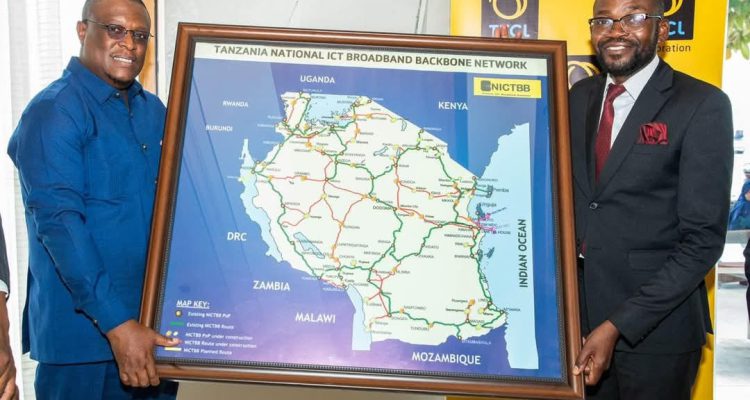
Recent developments surrounding the demarcation of Lake Malawi and claims over its ownership have ignited a fierce debate in Malawi, raising crucial questions about national sovereignty, governance, and the preservation of vital national resources.
The controversy, which has gained significant attention on social media platforms, has divided public opinion, with many Malawians expressing strong discontent while others scrutinize the motivations behind such decisions.
In the past week, a surge of reactions has flooded social media, with many expressing deep concern over the potential sale or ceding of parts of Lake Malawi to neighbouring Tanzania.
The lake is not only a vital part of the nation’s economy but also a symbol of Malawi’s historical and cultural heritage. For many Malawians, the notion that their government could sell or allow portions of the lake to be controlled by another country is seen as a betrayal of their national identity.
One prominent comment from a concerned citizen was, “Koma ngati MCP yagulitsadi nyanjayi, mmm yalakwitsa,” which translates to “If MCP has sold the lake, they’ve made a huge mistake.” This remark reflects the widespread belief that the Malawian government, led by the Malawi Congress Party (MCP), has betrayed the people’s trust by entertaining such an arrangement.
The sentiment that the lake, being a national treasure, should remain under full Malawian control is shared by many, who argue that such an irreplaceable resource should not be subjected to foreign claims.
The anger didn’t stop there. Another user harshly labelled the decision as “nonsense,” emphasizing that selling or allowing foreign claims over Lake Malawi was an act of poor governance.
“Basi nyanja yapita koma Congress anthu awa anabwera kuzawononga” (The lake is gone, and the Congress has come to destroy), one commenter lamented, adding fuel to the growing frustrations that the government’s actions could harm the country’s long-term interests.
In a more intense comment, one individual described the decision as “satanic,” suggesting a deeper, almost spiritual betrayal of Malawi’s sovereignty. This sentiment captures the emotional weight many people attach to Lake Malawi, seeing it as more than just a body of water but a symbol of the nation’s independence and pride.
The idea of making decisions regarding the lake without wide consultation, especially among those who are most affected, has sparked feelings of confusion and betrayal.
The outcry has brought to light the significant concerns that many Malawians feel regarding the lack of transparency in such a critical matter. The people of Malawi view Lake Malawi not only as a vital resource for livelihoods—through fishing, tourism, and transportation—but as a cornerstone of their national identity.
As a result, many feel that any decisions regarding its demarcation or sale should not be made in isolation by political elites but should involve public consultation.
A recurring call on social media is for a referendum—a democratic process that would allow Malawians to decide the fate of the lake. Citizens are arguing that, since the lake belongs to the entire nation, it is only fair that all Malawians have a say in its future.
One individual commented, “Ziganizo zikulu zikulu ngati izi zimafunika referendum osati adindo pa okha kupanga ziganizo ayi” (Such major decisions require a referendum, not just decisions made by the few).
This remark reflects the growing demand for inclusive governance, where decisions that impact national resources should be made transparently and democratically.
The debate is further complicated by historical and geopolitical considerations. While the issue of Tanzania’s share of Lake Malawi has been a long-standing matter, many people are asking why the government is focusing so much on Tanzania’s share without considering the smaller portion claimed by Mozambique.
One user commented, “If part of Lake Malawi belongs to Tanzania, why not demand compensation?” This question points to the apparent imbalance in how the situation is being approached, with some suggesting that Malawi should negotiate better terms to protect its interests.
However, it is important to note that the majority of Lake Malawi still lies within Malawian borders, a fact often overshadowed in the discussions about Tanzania’s portion. As political commentator Rick Dzida pointed out, “The majority of Lake Malawi belongs to Malawi.” This underscores the need for a balanced approach that considers both the international aspects of the issue and the country’s sovereignty.
While the government has yet to make a definitive statement about the sale or demarcation of Lake Malawi, the backlash suggests that Malawians are deeply invested in how their resources are managed.
The emotional reactions point to a larger issue of governance—one that goes beyond the specifics of the lake to encompass broader concerns about transparency, accountability, and national pride.
As the debate rages on, one thing is clear: the government must address the concerns of the people and ensure that decisions about Lake Malawi are made with the full participation of the Malawian public.
Many believe that the decision regarding the lake’s future should be a collective one, involving all stakeholders, from local communities that depend on the lake for their livelihoods to national leaders who must consider the long-term implications of such a decision.
If this issue is left unresolved or mishandled, it could significantly impact the trust that Malawians place in their government, as well as the country’s international reputation. The preservation of Lake Malawi is not just a matter of national interest—it is a matter of national identity.
In the coming weeks, it will be important for the government to engage with the public, provide clarity on the situation, and consider holding a national referendum to ensure that the voice of the people is heard. Until then, the debate over the fate of Lake Malawi is likely to continue to dominate public discourse in Malawi.














